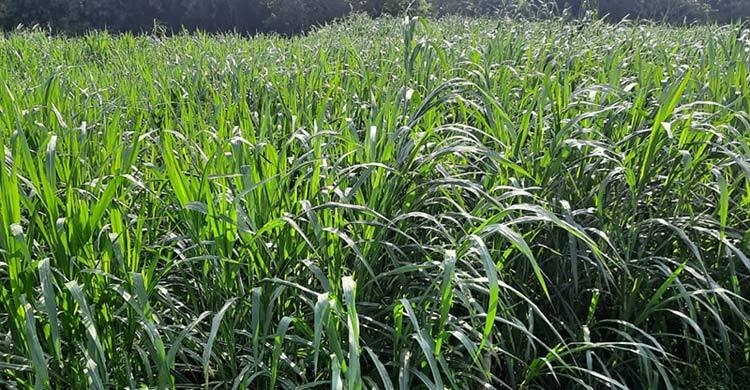Now they want embarking on a grass-growing mission abroad

After previous plans to send officials abroad for learning fish farming and cooking kedgeree, a new proposal has emerged: sending 32 government officials overseas to learn grass cultivation.
The trip, part of an ongoing project, is estimated to cost Tk 3.20 crore, with each officer allocated Tk 10 lakh. The proposed training would take place in New Zealand, Australia, Thailand, and Vietnam.
Over the past four years, no foreign trips have been funded for this project.
However, with a one-year extension to the project timeline, a new budget allocation of Tk 3.20 crore has been proposed. Despite the country's current financial situation, government officials are pushing for these international trips to learn about grass cultivation.
The project in question, "Extension of Cultivation of Improved Varieties of Grasses for Improvement of Animal Nutrition and Transfer of Applied Technology," is designed to boost the production of nutritious grass for livestock in Bangladesh.
The total cost of the project stands at Tk 117.49 crore, and the Department of Livestock is overseeing its implementation. The project timeline has now been extended by one year, with officials hoping to utilize this period for foreign training.
Project Director Amjad Hossain Bhuian explained that although progress has been slow due to lack of proper funding, the project has achieved about 17% completion. "We are extending the project until December 2025 due to delays. However, traveling abroad is not a priority right now," he said.
He emphasised that the foreign trips might be excluded from the project’s revised budget, adding that it was unlikely anyone would be allowed to travel abroad under the current circumstances.
Additional Secretary Sayeduzzaman from the Ministry of Agriculture echoed this sentiment, stating, “Now is the time to focus on working for the country, not traveling abroad. If any aspect of the project involves grass cultivation trips, it will be excluded.”
Despite the project's potential benefits in expanding the cultivation of improved grass varieties and enhancing livestock nutrition, critics argue that the foreign trips are unnecessary.
Dr Mustafa K Mujeri, former Chief Economist of Bangladesh Bank and Executive Director of the Institute for Inclusive Finance and Development (INM), expressed strong disapproval: "There is no need to travel abroad to learn grass cultivation. It's a waste of money. Grass cultivation is not a technical task that requires overseas training. The grasses already in use can fulfill the same purpose, and the entire plan is an unnecessary expenditure."
Dr Mujeri urged the government to reconsider such wasteful initiatives, particularly in the current economic climate, and emphasized the need to eliminate projects that contribute to unnecessary spending.
The project aims to improve livestock nutrition by promoting high-yield grass varieties and implementing silage technology for raw grass conservation. It includes setting up thousands of grass demonstration plots across the country and importing Napier-1 germplasm to enhance domestic grass cultivation.
Still, as the debate over the foreign trips continues, it remains uncertain whether these controversial plans will be scrapped or proceed as part of the project’s extension.

